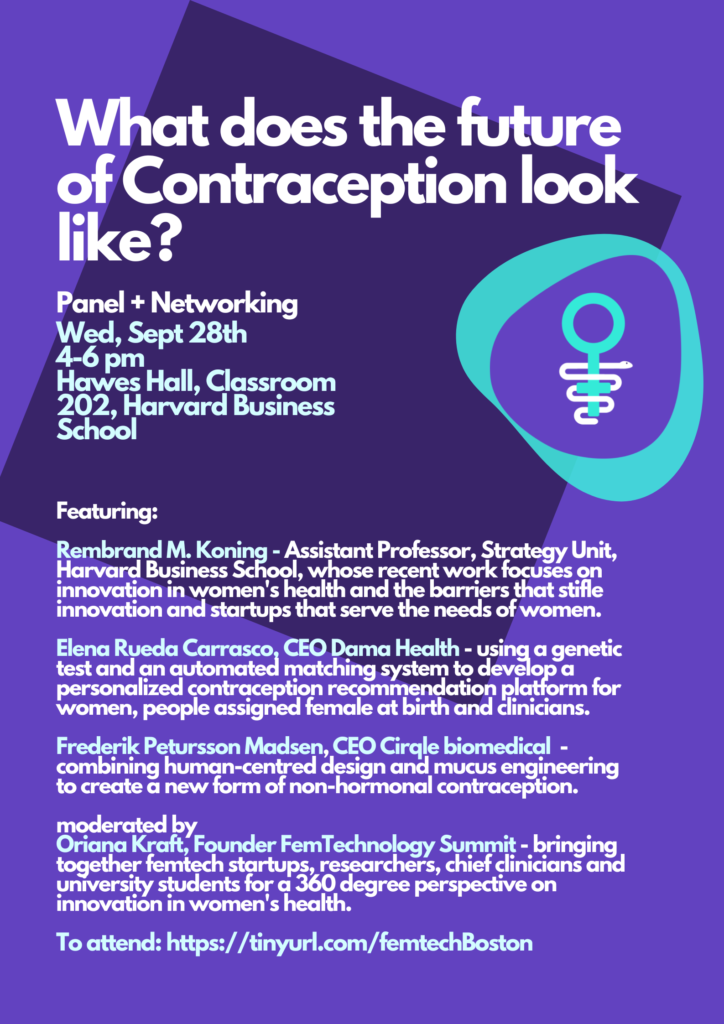In 2021, at our inaugural FemTechnology Summit we asked: What does the future of contraception & fertility look like?
We featured Pascal Koenig of Ava, Lynae Brayboy of Clue, Eirini Rapti of Inne, Frederik Petursson Madsen of Cirqle
So much has happened since then:
Cirqle (A novel approach to birth control, aiming to reinforce the natural cervical mucus barrier to provide effective birth control on demand without any hormones) and Organon entered into a research collaboration to advance preclinical research on the product.
Ava (a bracelet tracking 5 physiological signals using machine learning algorithms to extract from this data the 5 most fertile days) was acquired by FemTec Health.
Clue (known primarily for its period tracking capabilities and Encyclopaedia of research collaborations) rolled out its Birth Control to an initial group of users in the USA as a novel non-hormonal form of contraception.
Inne (a device for at-home, saliva-based hormone testing to support fertility and cycle tracking ) partnered with Phenology for a collaboration surrounding perimenopause
And of course, OF COURSE, in the US Roe v Wade was reversed – causing the entire discussion around the future of contraception and fertility to take on a much heavier, legal dimension. Women’s health going from being under-researched, under-innovated in and stigmatized to criminalized, creating a quandary as to whether users will trust new companies, new approaches. And on the flip side posing the question: will new companies be as interested in innovating this space when they do not yet know what the future landscape will look like? (https://www.buzzfeednews.com/article/raenudson/tech-contraception-fertility-startups)
So what DOES the future of contraception look like in 2022? Join Us Wednesday, September 28th at Hawes Hall, Classroom 202 at Harvard Business School to discuss what the future of contraception might look like featuring :
Rembrand M. Koning – Assistant Professor, Strategy Unit, Harvard Business School, whose recent work focuses on innovation in women’s health and the barriers that stifle innovation and startups which serve the needs of women.
Cirqle biomedical – Combining human-centric design and mucus engineering to launch a novel form of non-hormonal contraception.
Dama Health – A startup using a genetic test and an automated matching system to develop a personalized contraception recommendation platform for women and clinicians.
Moderated by FemTechnology Summit – Bringing together Femtech startups, researchers, chief clinicians and university students for a 360 degree perspective on innovation in women’s health.
To attend: http://www.tinyurl.com/femtechboston
